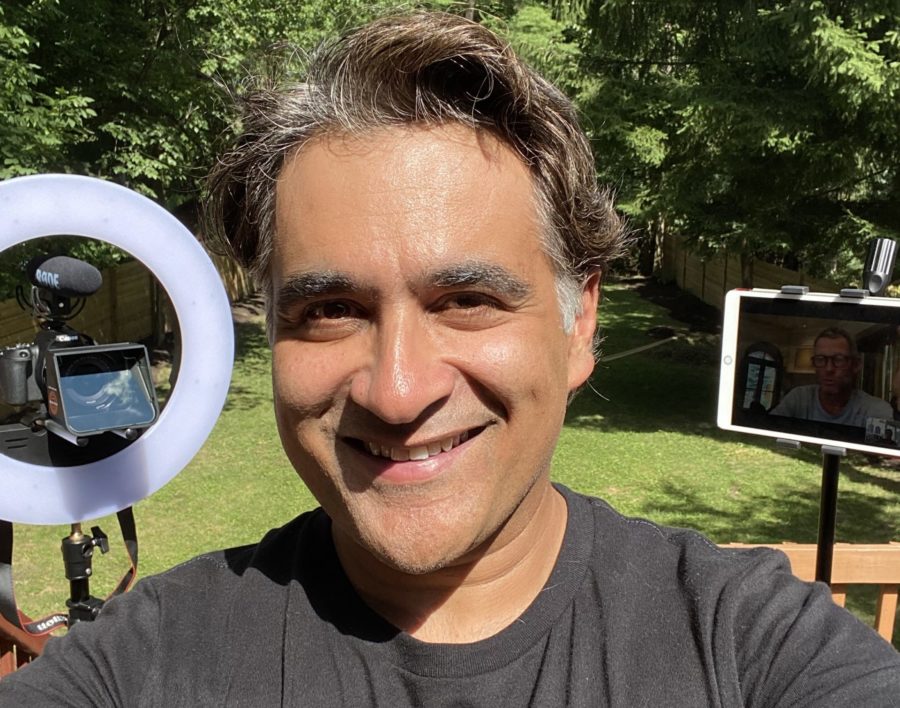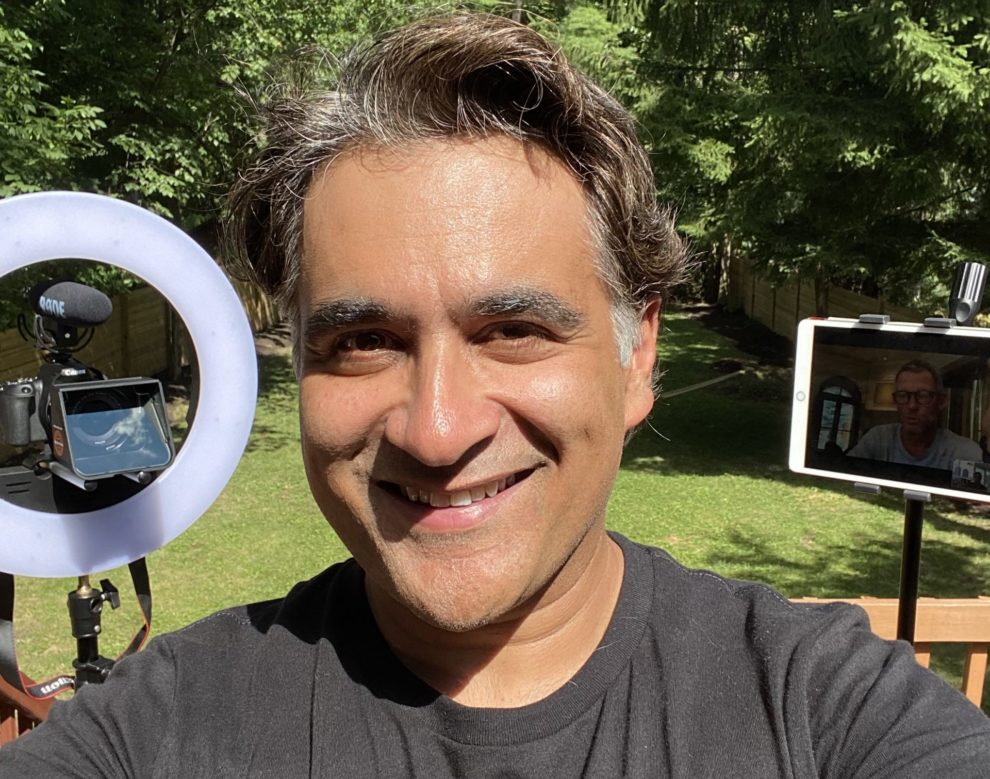Thursday’s Techstars Toronto Accelerator Demo Day featured 10 startups and an interesting discovery: Canada has become one of the top sites for foreign entrepreneurs.
Subscribe to the Crunchbase Daily
Sunil Sharma, Techstars Toronto’s managing director, told Crunchbase News that many entrepreneurs are now banned from entry into the United States, while others are experiencing issues with maintaining their U.S. visa status. In addition, many are not choosing to live here due to the current political climate, he added.
Prior to joining Techstars, Sharma was a consul general in California and said he saw firsthand the challenges of H-1B visas. This type of visa enables American employers to hire highly-skilled nonimmigrants.
In August, the federal government relaxed some of the restrictions on this type of visa after suspending them in June due to record unemployment related to the pandemic. The Economic Times reported that “between January and April 2020, about 27,000 of the 76,000 immigration work permits that Canada issued went to Indian nationals.”
When he was back in Canada, Sharma challenged the government to fast-track talented people into the country which resulted in the Start-up Visa Program.
“It allows investors to find a team of founders and help them get permanent residency, like a U.S. Green Card, without immigration challenges,” he said. “We think it is an unfair advantage as an investor and something that has become more pronounced today with the U.S. travel bans and more severe lockdown on visas.”
Coming to Canada
Three of the companies presenting at Demo Day were involved in the most recent accelerator program. In fact, among the 10 companies, three founders are Iranian and others hailed from countries including Nigeria, Poland, India and China, Sharma said. In almost all cases, the immigrant founders were brought in with Canada’s visa advantages, he added.
One is Artboard Studio, a collaborative design tool startup that started in Istanbul. They were initially planning to attend a Techstars program in the U.S., however, one of the founders is an Iranian national and was not allowed to enter the country, Sharma said. Instead, the program’s director reached out to Sharma who was able to pivot the company into the Toronto accelerator.
During his pitch, co-founder and CTO Hooman Askari, an Iranian national, discussed establishing a presence in North America to be closer to the majority of the company’s customers and that now they were headquartered in Toronto. Afterward in the previously taped panel discussions, Askari described his difficulties, and those of his co-founder, Mucahit Gayiran, of trying to come to America.
“We tried several times, but unfortunately every time, we hit closed doors just because of my nationality and the political issues between the Iranian government and the United States,” Askari said. “It is practically impossible for any Iranian national to get a visa and travel to the United States.”
After making those several attempts, he said he was just about ready to throw in the towel, when he and Gayiran decided to apply to Techstars Boulder Accelerator and were accepted into the program. However, they still ran into visa issues. But then the Techstars program reached out to Sharma to see if Artboard would be able to attend the program in Toronto.
“When we got into Toronto, we couldn’t be happier,” Askari said. “I love my job and believe we can do a lot better here.”
Another company is CarScanner, originally based in Poland, which has also now moved its headquarters to Toronto. The automotive startup scans cars for automatic parking enforcement and car damage documentation via autonomous robots.
“I flew to Poland to meet them, before COVID, and was blown away,” Sharma said. “The founder had mentioned a love affair with Canada since childhood, and now they have made their headquarters here.”
Another company that preferred to lay some roots down in Toronto was Quidax, a startup out of Lagos, Nigeria. The company is developing a digital assets exchange that allows users in Africa to seamlessly buy and sell cryptocurrency with their local currency.
Techstars was able to help Quidax’s founders reincorporate in Toronto and get them the money services business license to operate in the country.
“Now they have become an international company with a big team in Nigeria and small team in Canada,” Sharma said.
Toronto as an entrepreneur hub
Meanwhile, Toronto is the fourth-largest city in North America, and the tech scene is exploding there, Sharma said.
In 2017, Statista estimated that there were between 2,100 and 2,700 startups operating in the Toronto-Waterloo ecosystem, while StartupBlink, a Swiss-based website that provides data on the best places on the planet for starting a new business, ranked Toronto’s startup ecosystem as the 24th best in the world.
In addition to a pool of talent, the city is quite diverse with just over 50 percent of its population being immigrants, he added.
“That fact becomes valuable in attracting more entrepreneurs,” Sharma said.
Despite the attraction, it is not yet as easy to raise money in Canada as it is in the U.S. However, it does provide American investors with opportunities to reach emerging markets, he said.
“For example with Quidax, U.S. investors can see the financial markets in Africa, but it may be challenging for them to directly invest,” Sharma said. “But, here is one company in Canada operating under our laws that they could invest in and get exposure to emerging markets. It’s a message more investors can see in the global context.”
Feature photo of Techstars Toronto Accelerator Managing Director Sunil Sharma behind the scenes at its September Demo Day courtesy of Sharma.
Blogroll illustration: Dom Guzman

Stay up to date with recent funding rounds, acquisitions, and more with the Crunchbase Daily.



![Illustration of a man sitting on a huge pile o' money. [Dom Guzman]](https://news.crunchbase.com/wp-content/uploads/Giant_Funding-470x352.jpg)

![Illustration of a suitcase stuffed with money. Megafunds [Dom Guzman]](https://news.crunchbase.com/wp-content/uploads/Megafunds-470x352.jpg)
![Illustration of a guy watering plants with a blocked hose - Global [Dom Guzman]](https://news.crunchbase.com/wp-content/uploads/quarterly-global-3-300x168.jpg)
67.1K Followers